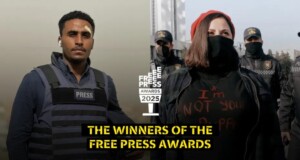Report: ‘Military control of Sudan economy obstructs democracy’
A repressive cartel of state-affiliated actors uses its control of the economy to obstruct Sudan’s democratic ambitions, constituting a ‘deep state’ within Sudan and working across state structures to enrich its members and insulate them from accountability. This is highlighted and investigated in a new report released by C4ADS*, a Washington-based NGO which analysis and reports on conflict and security issues worldwide.
 The report entitled Breaking the Bank outlines how military control of the economy obstructs democracy in Sudan
The report entitled Breaking the Bank outlines how military control of the economy obstructs democracy in Sudan
A repressive cartel of state-affiliated actors uses its control of the economy to obstruct Sudan’s democratic ambitions, constituting a ‘deep state’ within Sudan and working across state structures to enrich its members and insulate them from accountability. This is highlighted and investigated in a new report released by C4ADS*, a Washington-based NGO which analyses and reports on conflict and security issues worldwide.
The report entitled Breaking the Bank outlines how military control of the economy obstructs democracy in Sudan.
“Complex corporate structures built to sustain the Sudanese deep state under al-Bashir continue to shield it from international justice and accountability. Sudan’s deep state owns some of the largest companies in the country, giving it access to extra-budgetary financial flows and powerful economic positions to appoint key political leaders. Its control of banks, import-export companies, and processing plants allows its vertically-integrated monopolies to undercut domestic civilian enterprises. There is very little incentive for the deep state to meaningfully negotiate with civilian actors while it holds military and economic power.”
The report underlines that as the deep state meets opposition with violent repression, “if the Friends of Sudan** remain committed to supporting the aspirations of the Sudanese people for a free, democratic, peaceful, and prosperous Sudan, then they must take action against Sudanese State-Controlled Enterprises.”
In conclusion, the authors of the report urge the Friends of Sudan “to sanction the deep state’s key financial nodes”. The recommend that private enterprises and aid providers should disengage from business with state-controlled enterprises, and that the international community should support civilian organisations pursuing justice and accountability in Sudan.

C4ADS will host a webinar on July 13 at 11:00 (US Eastern Time), during which experts from the Sudanese and American policy communities will reflect on the findings of the new report and discuss what steps the international community can take to move Sudan towards democracy. Register for the webinar here.
*C4ADS is a non-profit organisation dedicated to data-driven analysis and evidence-based reporting of conflict and security issues worldwide. The authors: Catherine Cartier is an analyst on the Conflict Affected States team, where she works on Sudan and Afghanistan. Eva Kahan is an analyst on the Conflict Affected States team, where she works primarily on Sudan. Isaac Zukin is a senior analyst on the Conflict Affected States team, where he works primarily on Sudan.
**The member countries of Friends of Sudan include Canada, France, Germany, Italy, Saudi Arabia, the Netherlands, Norway, Spain, Sweden, United Arab Emirates, the United Kingdom, the USA, and the European Union.











 and then
and then